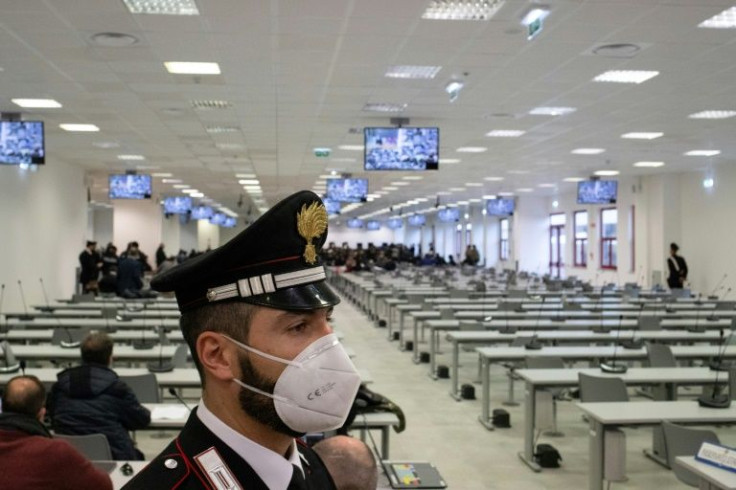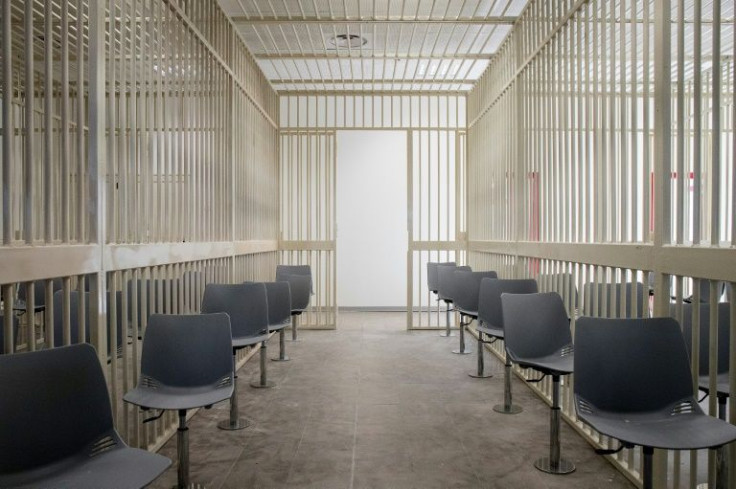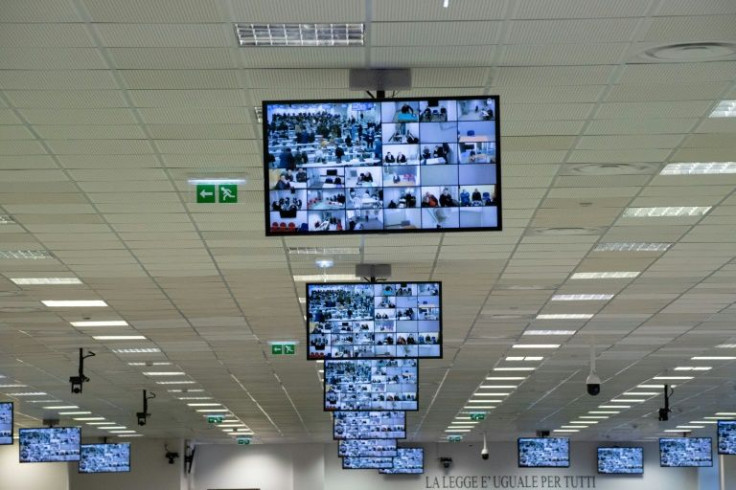Dead Dolphins, Extortion, Bullets In Italy's Mafia 'Maxi-trial'
A dead dolphin on a doormat and windows smashed with sledgehammers. Weapons stored in cemetery chapels. Bribes to judges for acquittals, and bogus medical certificates letting convicted killers dodge prison.
These are the stories recounted since January by dozens of 'Ndrangheta members turned state witnesses in Italy's largest anti-mafia trial in three decades, covering everything from intimidation to vote-buying, and drug trafficking to murder.
"They waited for them in Piazza Morelli, invited them to eat ricotta at the farm... and then they killed, burned and melted them," testified one criminal-turned-witness, Andrea Mantella, describing a 1988 revenge killing of two brothers.
The 'Ndrangheta, Italy's most powerful organised crime syndicate, is in the crosshairs of the "maxi-trial" against 355 defendants held in the poor southern region of Calabria, the group's home turf.
Having expanded well beyond its rural roots, the 'Ndrangheta now dominates Europe's cocaine trade and has infiltrated many areas of the legal economy throughout Italy, and even abroad.

It is helped by close contacts with politicians and business figures, and its stranglehold over the local population in Calabria.
Testimony that wrapped up this month from an unprecedented 58 mafia informants -- connected to court by video link -- exposed both the brutality of the 'Ndrangheta, but also the insidious influence of the group at all levels of society.
The trial focuses on one Calabria province, Vibo Valentia, whose family clans are dominated by Luigi "The Supreme" Mancuso, 67, himself on trial after serving a 19-year sentence for drug and mafia crimes until 2012.
"Without the consent of Luigi Mancuso you can't open any business," testified his nephew, Emanuele Mancuso, in March.

With nicknames like "Lamb Thigh", "Sweetie", "Wolf" and "The Wringer", the defendants -- many of whom are related -- are alleged bosses and operatives, as well as their white-collar enablers.
They are accused of procuring weapons, gathering votes or delivering messages. Others allegedly collected and distributed cash to prisoners, acted as accountants, or managed relations with mafia in other regions. Still others determined extortion targets and planned ambushes.
The extent of the 'Ndrangheta's reach in the local economy has made it near impossible to eradicate.
The court has heard of ambulances moving drugs, water supplies diverted to marijuana crops and drowned migrants buried without coffins after rigged public tenders.
Informant Mantella, a high-ranking member who confessed to numerous murders, said 70,000 euros ($79,000)were paid to release him from prison to a medical clinic where "I did what I wanted", underscoring the 'Ndrangheta's financial clout.
Mantella and another state witness also testified that the 'Ndrangheta paid 50,000 euros to former senator and lawyer, Giancarlo Pittelli, who protests his innocence, for trial fixing.

The defendants also include police, court workers, mayors and other officials -- some allegedly meeting mafia in illegal Masonic lodges.
Calabrian journalist Consolato Minniti told AFP the maxi-trial is the first to go "above and beyond the 'military' side of the 'Ndrangheta".
"Until today, judges have generally targeted those who shoot," he said.
Cozy ties are nothing new. In the past 30 years, 110 city councils in Calabria have been dissolved over mafia infiltration -- some three times, including Lamezia Terme where the trial is being held.
The Mancuso family's home town, Limbadi, was the first. Its administration was dissolved by Italy's president in 1983 after a fugitive boss, Francesco "Ciccio" Mancuso, was elected mayor in absentia.
Allegations in the 351-page indictment show how the 'Ndrangheta will stop at nothing to pursue its aims.
Various tactics are used to coerce protection money, force owners to sell below market value, get businesses to switch to mafia suppliers, or chase loans with extortionate interest, sometimes above 200 percent.
Dead puppies, dolphins and goat heads have been dumped on the doorsteps of resisters, threatening phone calls made, beatings meted out, cars torched, Molotov cocktails thrown and shots fired.
Suspects in five murders, including a 'Ndrangheta member killed in 2002 because of his homosexuality, are in the dock in the maxi-trial.
The gay victim was buried and later covered by tarmac, informant Mantella said.
There were 1,320 mafia-related murders in Calabria from 1983 to 2018, according to the authorities.
In a May 2017 episode captured on wiretap and included in the indictment, a 'Ndrangheta member called the brother of a woman who lost 7,000 euros of marijuana after a police seizure.
"Let's try to get this money back or (you'll) find your sister in a cement pillar," the caller said.
"Because these people don't joke around."
The trial continues.
© Copyright AFP 2024. All rights reserved.




















